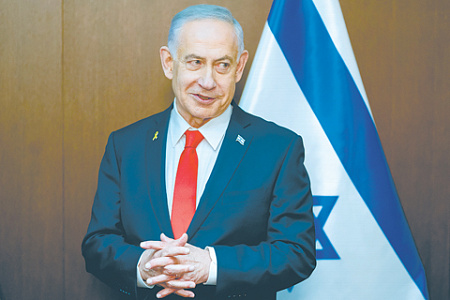
In a move poised to reshape the geopolitical landscape, former President Donald Trump, eyeing a potential return to the Oval Office, has signaled his firm intention to designate the Muslim Brotherhood (MB) as a foreign terrorist organization. This long-standing ambition, left unrealized during his initial term, is now being framed as a critical step with multifaceted implications, particularly in the context of the ongoing conflict in Gaza and surging anti-Israel sentiment within the United States. Israeli Prime Minister Benjamin Netanyahu has already voiced unequivocal support for the proposed designation, underscoring its perceived strategic value.
Trump formally conveyed his renewed commitment to Just the News, asserting that the designation would be executed with the “harshest and most decisive wording,” with final documentation reported to be in preparation. While a similar attempt stalled during his first presidency, the administrative groundwork is complex. As previously noted by former Secretary of State Marco Rubio, the MB’s decentralized nature, with numerous affiliates and branches across the U.S., necessitates extensive scrutiny before any federal blacklisting can proceed.
This initiative is not without significant political backing, garnering support from a coalition of Republicans and some Democrats. Senator Ted Cruz spearheaded legislative efforts last summer, introducing a bill to the Senate that sought to recognize the MB as a terrorist entity, proposing a new strategy for managing its presence within the U.S. Cruz articulated that the organization poses a substantial threat to U.S. national security and its allies in the Middle East, noting that several nations in the region and Europe have already adopted similar designations. An analogous bill has also been presented to the House of Representatives.
The proposed designation is inextricably linked to the volatile situation in Gaza. The Muslim Brotherhood has historically served as the ideological bedrock for Hamas, with the Palestinian faction often positioning itself as an offshoot in the Palestinian territories. Consequently, the ban is viewed through the lens of regional stabilization, with Washington believing it could contribute to broader Middle Eastern security. Prime Minister Netanyahu’s rapid endorsement of Trump’s intent underscores this perspective, with the Israeli leader asserting that the MB “threatens stability across the entire Middle East and beyond.”
Internationally, the Muslim Brotherhood’s status varies dramatically. It is already proscribed as a terrorist organization in several key Middle Eastern states, including Egypt, Jordan, and various Gulf nations. Conversely, countries like Qatar and Turkey are widely perceived as sympathetic to, or actively supportive of, the MB’s political objectives and activities.
A significant domestic implication of this designation could be its impact on U.S.-based civil society organizations. It is widely believed that the MB has historically channeled funds to groups in Gaza through various public organizations, some operating under U.S. jurisdiction. Consequently, the designation could empower authorities to target funds and public advocacy groups that openly lobby for Muslim interests and oppose the war in Gaza. Representative Randy Fine has candidly articulated this potential reach, stating, “We will use this to crush Muslim terrorist organizations like the Council on American-Islamic Relations (CAIR) and Students for Justice in Palestine (SJP).” He further lauded the President for this anticipated action.
Expert analysis suggests that Trump’s initiative is strategically aimed at confronting entities deemed hostile to both Israel and its regional allies. Kirill Semenov, an expert with the Russian International Affairs Council, observed that the designation could establish a legal precedent, enabling the U.S. to “initiate sanctions against undesirable governments in the Middle East.” Semenov further elaborated on the elastic nature of such a designation, noting that “any organization” could potentially be linked to the MB, given that the Brotherhood often operates through myriad political parties and offshoots that may evolve beyond its core ideology.
A critical question, according to Semenov, revolves around the criteria for determining an organization’s affiliation with the MB. He cited the example of Hamas, which, despite historical ties, has reportedly removed references to the MB from its updated charter, thereby complicating classification. This fluid dynamic, where branches of the organization in various countries may officially distance themselves from the parent group, presents a significant definitional challenge for implementers of the proposed ban.
Beyond international strategy, the move carries profound domestic political implications. The MB’s “broad and ill-defined ideological stratum” could be used to encompass a wide range of individuals and groups. Semenov provocatively suggested that even figures like New York Mayor Zohran Mamdani, if desired, “could be labeled an MB supporter and declared a terrorist.” This raises concerns that the designation could serve as a “safeguard” to prevent certain political figures from winning elections, effectively branding any Muslim politician as a potential MB sympathizer. This approach, Semenov noted, mirrors tactics employed by countries like the UAE, where the MB label is sometimes used to persecute individuals irrespective of their actual ties to the organization, highlighting the potential for broad, politically motivated application.
